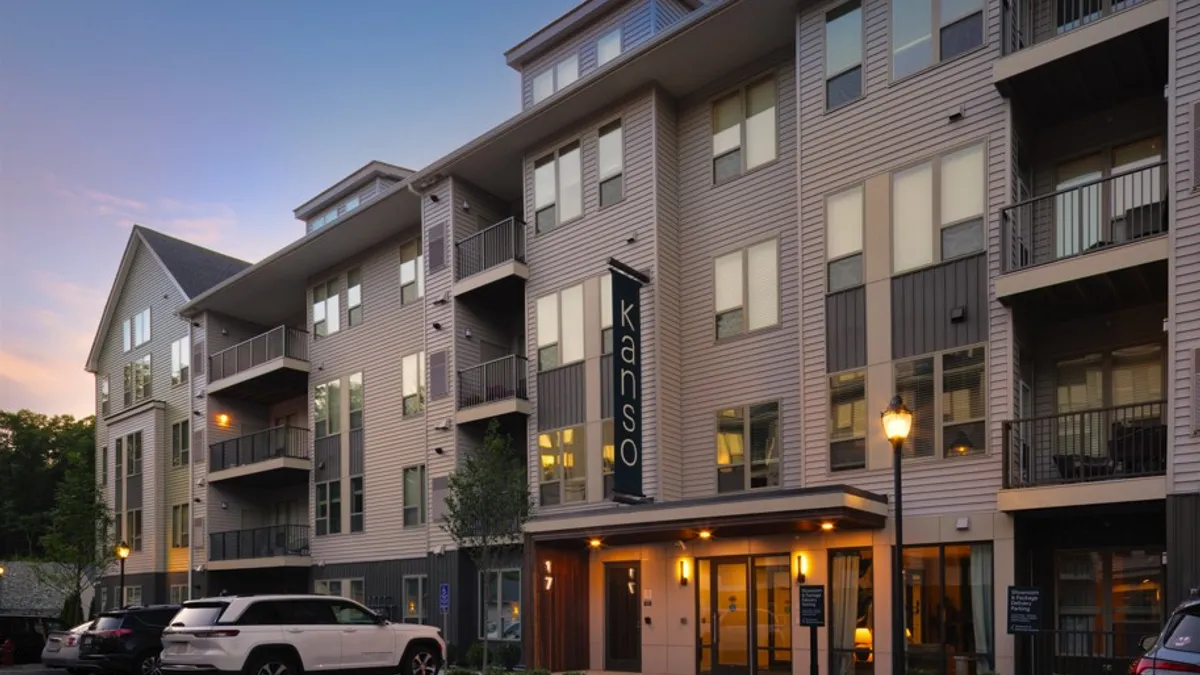2024 has been an active year for regulatory action related to the multifamily industry, particularly at the state and local levels. Over the past year alone, states have considered approximately 150 bills related to rent control, 60 on fee regulation and more than 70 on resident screening practices, according to the National Apartment Association’s State Legislative Tracker.
In the cases where these bills have passed, multifamily owners and operators are tasked with changing their operations to comply. This can get especially complicated for larger companies that operate across multiple markets.

“The impact and the struggle for larger operators is that [housing regulations are] municipality by municipality, state by state,” Rick Pollack, managing director at Bethesda, Maryland-based real estate investment advisor RCLCO Fund Advisors, told Multifamily Dive. “And so you end up with patchwork regulations, and sometimes those regulations are in conflict with each other.”
California changes
California operators are seeing some of the biggest changes now and in the near future. These include Assembly Bill 2801, which sets new requirements for documentation for security deposit dispositions, and AB 2493, which imposes limits on application screening fees, according to Whitney Prout, executive vice president of legal affairs at the California Apartment Association.
Under AB 2801, effective July 1, 2025, landlords must take photographs of a unit before move-in, after move-out and before and after any necessary repairs or cleaning, which must be provided to the tenant.

“There are some challenges operationally, just in figuring out, how do you store those photos, make sure they really live with the resident file, and then make sure that they get included with the security deposit disposition?” Prout said.
Prout noted that different-sized multifamily operators may need to take different approaches to comply with this law. Larger operators can integrate this extra step into their property management solutions, while smaller mom-and-pops may work better with a manual system.
“Mid-sized owners … almost have the most challenging position with respect to this new requirement,” Prout said, “because they're not necessarily going to have the more sophisticated property management tools at their disposal, but they're too big to have a totally manual process.”
AB 2493 prohibits charging tenants application screening fees unless they either consider applications only in the order they are received and approve the first application that meets screening criteria, or return the application fees of any potential tenants that are not selected.
“For some owners, it’s really going to change the way that they screen applicants, because if they don't already have one of those two options in place, it means they're going to have to make a choice between establishing one of those policies or not charging a fee,” Prout said.
Other new requirements in the state include AB 2747, effective immediately, requiring landlords to provide residents with the option to report on-time payments to credit bureaus, and Senate Bill 611, which forbids fees on rents paid by check, fees for posted notices or charging tenants in the military more than the standard security deposit amount, effective July 1, 2025.
The CAA recently released a series of forms and resources that companies operating in California can use to ensure compliance with law changes in the state.
New York laws
One of the most sweeping changes to New York state housing law this year was the passage of the Good Cause Eviction law, according to Kenny Burgos, CEO of the New York Apartment Association. This law, which took effect on April 20, states that landlords of market-rate homes cannot evict residents without “good cause,” such as nonpayment of rent. A list of these causes is available in the law text.
More recently, New York City’s FARE Act, passed on Nov. 13, made the party that hires an apartment broker, usually the landlord, responsible for paying their fees. The act is set to take effect June 11, 2025.
This upfront fee is typically 12% to 15% of the annual rent, according to CBS News — often several thousand dollars.
“We don't view the bill to be as simple as the fee being passed either to the owner or to the tenant,” Burgos told Multifamily Dive. “We actually do anticipate a shrink in terms of the number of available units, at least publicly, to people searching for an apartment. But there is a big concern, especially for our owners, on how this will [lead to] a massive increase in cost.”
Burgos said that owners operating under New York City’s rent control laws have no way to pass this cost on. “If the main goal here is to increase affordability and to decrease the cost of rent overall [in] New York City,” Burgos said, “we stand by our points of saying increase in supply is going to be the main goal if you want to drop rents.”
Another NYC law, originally passed in 2016, is reaching its compliance deadline on May 1, 2025. Local Law 157 requires multifamily owners to place natural gas detectors near gas stoves.
“There’s really only one manufacturer that has the UL certification that the law requires,” Burgos said. “We'll see in the next few months if other detectors come on the market, but they have to have the UL certification, so it's making it difficult to comply.”
Other state and local regs
Beyond New York and California, owners and operators in other states will also be working to comply with new laws regarding a range of issues.
For example, Colorado has seen a large number of law changes over the course of the last year. In April, Gov. Jared Polis signed the state’s for-cause eviction bill, and on June 5 the state enacted limits on rent increases after natural disasters, spurred by the aftermath of the Marshall Fire in 2021.
As of the start of 2025, Illinois landlords will be barred from retaliation against renters, based on a specific list of retaliatory actions indicated in the law. Maine, Virginia and Minnesota all now have additional disclosure requirements for fees in rental housing.
At the local level, both Philadelphia and San Francisco have banned the use of revenue management software that uses nonpublic data to determine rents. In response to these bans, Richardson, Texas-based software provider RealPage announced that it can adjust its product to meet legal requirements in these areas.
Any amount of change to operations, big or small, still comes at a cost for the operator — and in turn, to the renter, according to Pollack.
“If you're an owner, and you're trying to figure out, how do I efficiently operate my portfolio … that patchwork of regulation makes it more difficult,” Pollack said. “It's going to, in all likelihood, increase your costs, because now you have to monitor for compliance. At the end of the day, we generally see that those costs are passed on to the renters.”


















